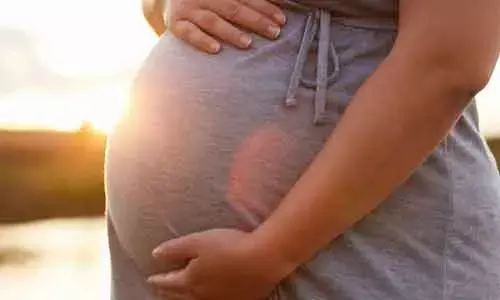- Home
- Medical news & Guidelines
- Anesthesiology
- Cardiology and CTVS
- Critical Care
- Dentistry
- Dermatology
- Diabetes and Endocrinology
- ENT
- Gastroenterology
- Medicine
- Nephrology
- Neurology
- Obstretics-Gynaecology
- Oncology
- Ophthalmology
- Orthopaedics
- Pediatrics-Neonatology
- Psychiatry
- Pulmonology
- Radiology
- Surgery
- Urology
- Laboratory Medicine
- Diet
- Nursing
- Paramedical
- Physiotherapy
- Health news
- Fact Check
- Bone Health Fact Check
- Brain Health Fact Check
- Cancer Related Fact Check
- Child Care Fact Check
- Dental and oral health fact check
- Diabetes and metabolic health fact check
- Diet and Nutrition Fact Check
- Eye and ENT Care Fact Check
- Fitness fact check
- Gut health fact check
- Heart health fact check
- Kidney health fact check
- Medical education fact check
- Men's health fact check
- Respiratory fact check
- Skin and hair care fact check
- Vaccine and Immunization fact check
- Women's health fact check
- AYUSH
- State News
- Andaman and Nicobar Islands
- Andhra Pradesh
- Arunachal Pradesh
- Assam
- Bihar
- Chandigarh
- Chattisgarh
- Dadra and Nagar Haveli
- Daman and Diu
- Delhi
- Goa
- Gujarat
- Haryana
- Himachal Pradesh
- Jammu & Kashmir
- Jharkhand
- Karnataka
- Kerala
- Ladakh
- Lakshadweep
- Madhya Pradesh
- Maharashtra
- Manipur
- Meghalaya
- Mizoram
- Nagaland
- Odisha
- Puducherry
- Punjab
- Rajasthan
- Sikkim
- Tamil Nadu
- Telangana
- Tripura
- Uttar Pradesh
- Uttrakhand
- West Bengal
- Medical Education
- Industry
Maternal depression linked to depression risk in offspring: JAMA study

Depression in mothers during and after pregnancy increased the odds of depression in offspring during adolescence and adulthood by 70%, according to a new study by researchers at The University of Texas Health Science Center at Houston (UTHealth).
The systematic review was recently published in JAMA Network Open. It is the first study to examine the effects of maternal depression on children age 12 and older.
The authors note that 10-20% of mothers experience perinatal depression, which refers to the time during pregnancy (antenatal) or within the first year after birth (postnatal). Perinatal depression has been associated with reduced growth rates, malnutrition, and an increased risk of childhood health problems and obesity.
"There are a lot of studies that look at how perinatal depression affects a child's growth or emotional well-being, but we wanted to look at how it affects offspring later in life," said Vaishali Tirumalaraju, MBBS, a resident with the Louis A. Faillace, MD, Department of Psychiatry and Behavioral Sciences at McGovern Medical School at UTHealth and one of the study's first authors.
Researchers examined all published studies on the topic, zeroing in on six major cohorts following long-term symptoms in more than 15,000 children age 12 or older.
"We found that the offspring of mothers who had perinatal depression, especially antenatal depression, had a greater chance of having depression when they grow up," said Sudhakar Selvaraj, MD, PhD, an assistant professor of psychiatry with McGovern Medical School, the director of the Depression Research Program, and the study's senior author. "This is important because it shows perinatal depression not only negatively affects the mother, but also has a lasting negative impact on the child."
This research comes during a time of increased stress and strain on mental health, as the COVID-19 pandemic poses challenges for new and expecting mothers.
"Pregnancies during these times are particularly stressful given the social situation and physical distancing guidelines in place. There are a lot of moms without support who have to isolate, and many are handling extra stressors with limited resources," Tirumalaraju said.
"Stress can cause changes in eating habits, less desire to exercise, and overall less healthy behaviors that can lead to depression," said Selvaraj, a psychiatrist with UT Physicians, the clinical practice of McGovern Medical School. "Due to stigma, depression is hard to track because often mothers don't want to report that they are sad or having trouble mentally. Our study shows the potential long-term impact of depression in offspring and therefore the need for proper screening so that moms who could benefit from counseling and/or medication can be provided the resources they need."
Selvaraj is part of the UTHealth Women's Mental Health Program, which provides access to specialists in psychology and psychiatry in certain UT Physicians Women's Centers, simplifying the process for women to seek help for perinatal depression and other mental health conditions.
Study authors say more research into the factors involved in depression risk transmission and assessments of how to reduce this risk could help develop future strategies to mitigate depressive disorders in pregnancy.
Hina Zahid Joined Medical Dialogue in 2017 with a passion to work as a Reporter. She coordinates with various national and international journals and association and covers all the stories related to Medical guidelines, Medical Journals, rare medical surgeries as well as all the updates in the medical field. Email: editorial@medicaldialogues.in. Contact no. 011-43720751
Dr Kamal Kant Kohli-MBBS, DTCD- a chest specialist with more than 30 years of practice and a flair for writing clinical articles, Dr Kamal Kant Kohli joined Medical Dialogues as a Chief Editor of Medical News. Besides writing articles, as an editor, he proofreads and verifies all the medical content published on Medical Dialogues including those coming from journals, studies,medical conferences,guidelines etc. Email: drkohli@medicaldialogues.in. Contact no. 011-43720751


